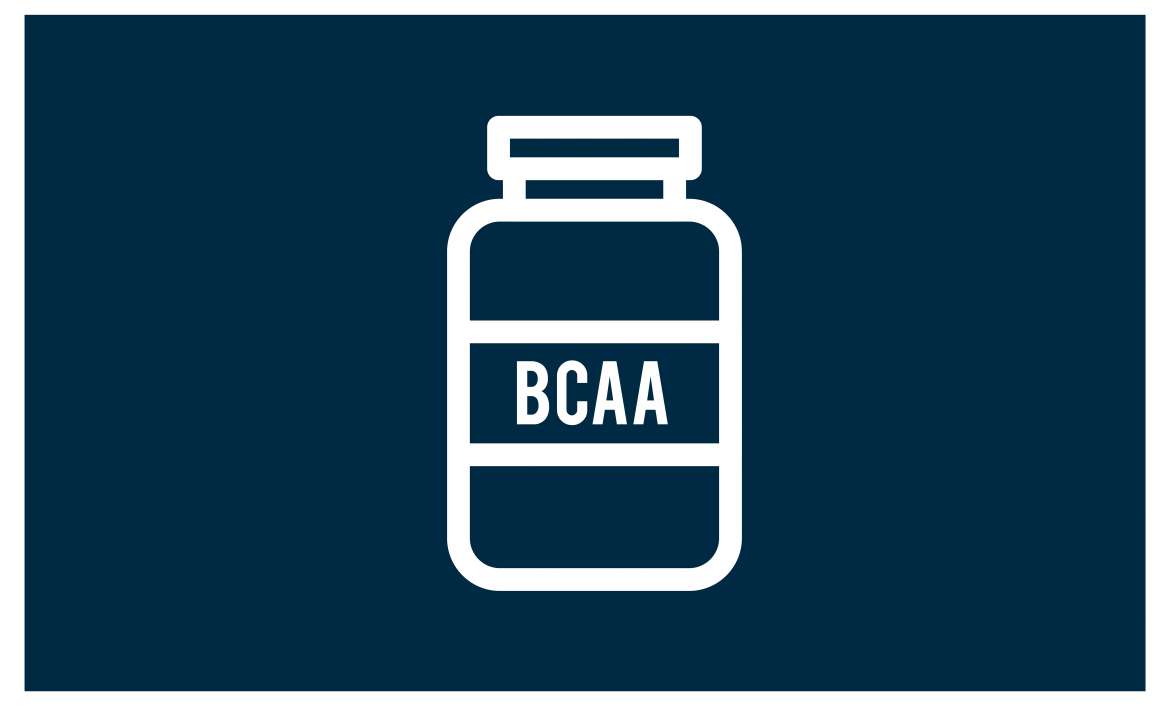BCAA stands for branched chained amino acids. They are called „branched“ because of their structure, which includes a “side chain” of one carbon atom and three hydrogen atoms. The three BCAAs are leucine, isoleucine, and valine and they account for around a third of essential amino acids in muscle proteins.
What this means is that even though amino acids are important in muscle growth, the three BCAAs are key players when you want to promote muscle protein synthesis. Because BCAAs are so important to muscle tissue and also help keep blood sugar levels constant, you want to make sure to get enough to support your workouts.
What do BCAAs do?
Studies have shown that BCAA supplementation can have certain benefits:
– Since BCAAs, especially leucine, are vital to muscle growth supplementation can promote muscle protein synthesis and increase muscle growth over time. It can also be used to prevent fatigue in beginners.
– It can improve your immunity by providing energy and helping in the synthesis of new cells.
– BCAAs also reduce exercise-induced muscle damage, which means you suffer from less soreness and get better long-term muscle function and growth.
Do you really need BCAA supplements?
The problem with these findings is that they come from studies that looked at people who were not getting enough protein in the first place. Obviously, when you are already getting very little protein, your body will love any additional amino acids and therefore perform better.
What you have to know is that you don’t have to consume supplements to get your BCAAs. Pretty much all quality whole food protein sources are high in BCAAs (e.g. meat, eggs and dairy products, but also whey protein).
I will assume that you are already getting most of your protein form such sources, so the real question we should be asking is what do BCAA supplements do when you consume them in addition to a normal protein intake?
The answer is: not much.
Even though there aren’t any studies that compare the two scenarios (1. ideal protein intake without BCAAs supplementation vs 2. ideal protein intake with BCAAs supplementation), there is also no evidence that taking BCAAs does anything when you already getting enough total protein (which will provide plenty BCAAs through your normal diet).
BCAAs And Fasted Training
That said, there is one benefit of BCAAs supplement. People who want to exercise in a fasted state, for example when working out first thing in the morning, should take them. That’s because when you exercise in a fasted state, muscle breakdown is increased. Too much muscle breakdown will hurt your muscle growth over time, which is why you want to minimize it.
Taking a good BCAA supplement can prevent muscle breakdown. That’s because the amino acid leucine is mostly responsible for the supersession of muscle breakdown, which you get plenty of from BCAA supplements.
Now, of course you could also eat something to get your leucine and avoid muscle breakdown, but that would break your fast, which I assume is not what you want when you are trying to work out in a fasted state. BCAAs, won’t break your fast because the have a very small impact on insulin levels.
So the bottom line is that BCAA supplements are usually overhyped and not necessary. The only situation where they are useful is when you want to or have to exercise on an empty stomach and want to avoid muscle breakdown.
How should you take BCAA supplements?
Assuming that you are in a fasted state and want to take BCAA before your workout, go with a dosage of 5 – 10 grams. After your training you should break your fast and get some additional protein, preferably from whole food sources.
But like I said before, it’s more important to watch your total protein than to micromanage your BCAA intake. Most people will not exercise in a fasted state so they don’t have to worry about it anyways.
Side effects
BCAA supplements are generally very safe. If you stick to the recommended daily intake you should be fine.



